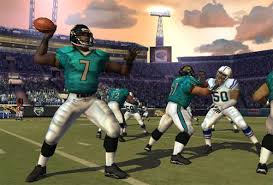Why are simulation video games so popular?
 From cleaning inner city streets to running your very own caravan park, whilst their individual gaming experiences differ what surely binds real life simulation games together is the significant amount of lampoon dedicated to them online. Subject of its own internet meme, simulation dubstep videos have surged in popularity by featuring their seemingly mundane gameplay and combining it with lasers, special effects and dubstep music, mocking other infamous videos featuring gameplay from more conventionally exciting games such as the Call of Duty franchise whilst making a completely different genre of internet parody.
From cleaning inner city streets to running your very own caravan park, whilst their individual gaming experiences differ what surely binds real life simulation games together is the significant amount of lampoon dedicated to them online. Subject of its own internet meme, simulation dubstep videos have surged in popularity by featuring their seemingly mundane gameplay and combining it with lasers, special effects and dubstep music, mocking other infamous videos featuring gameplay from more conventionally exciting games such as the Call of Duty franchise whilst making a completely different genre of internet parody.
The appeal of some simulation games however both past and present can be easily identified when examined individually. The popular 90s video game Theme Hospital for example was a cult success thanks to its innovative gameplay, which made running a hospital an enjoyable experience thanks to its colourful graphics and quirky humour, presenting gamers the option to cure patients with ‘Bloaty Head’ for example by popping them with pins. There’s also The Sims, the most successful video game series of all time, with its sequels and expansion packs offering players the opportunity to build their dream homes, careers and families, and where the narrative relies completely on whoever’s playing.
But even the most dedicated video game experts struggle when defining exact reasons why games such as Farming Simulator 2013 or London Underground Simulator continue to line the shelves of stores across the country, before being dumped in the bargain bins. Released alongside an array of exciting action, adventure and role playing games which have millions of dollars invested in their development, how is it that this niche franchise continues to thrive? Just who on earth are buying these games?
Well according to Pavel Sebor, owner of SCS Software which produces a wide variety of these games, including Euro Truck Simulator 2 and German Truck Simulator, these games are mainly popular in Europe, specifically in Poland, Germany and across Scandinavia, which Sebor describes as the “sweet spots of simulation games”. They’re also increasingly popular in developing countries like Brazil, Turkey and China, where they’re mainly played by two distinct demographic groups.
It’s no surprise that Sebor identities the main audience for his games as men, with women being more likely to invest their time into the aforementioned Sims series thanks to its creativity and versatility. Within this male group, Sebor states that the people buying his truck simulation games are either boys aged 8-12, who become captivated by driving such big vehicles, or men aged thirty five and over. Adult players are more likely to have a professional or emotional connection to whichever game they play, being a previous train driver or farmer for example and therefore wanting to simulate working in the industry during their spare time.
Following these findings, does this represent a crisis of masculinity, where men play seemingly mundane games in which they lead different lives as drivers because they’re bored of their own?
In the last few years Western society has been blamed for increasing rates of male depression, with the economic recession helping to erode self-esteem and increase pressure on men to find work and support their families. This is why it’s more than just to explain the popularity of these games due to the experiences they offer gamers when played, presenting opportunities which would normally be unavailable in real life. For some simulation games are windows of opportunity, providing the chance to digitally own a farm, football team or forklift truck regardless of the real life player’s finances, skill set or phobias.
Simulation games offer experiences based on desires and dreams that were never fulfilled, which is certainly a valid argument when considering the popularity of flight simulators offered by Microsoft. Learning to fly a real aircraft in real life is time-consuming and expensive, whereas their digital counterparts act as the next best thing for becoming equipped with the controls and taking to the air without having to worry about the consequences if things go wrong. Alongside the popularity of games such as Police Simulator, Rescue 2013 and Real Heroes Firefighter, aside from the authority these games offer, some players may buy these games so that they can use their skills to be the good guys.

Other players may choose these games because they are the next best thing to possessing the skills for controlling a bus or helicopter or any other vehicle where requires lots of training. Having a simulator which is truly realistic however is discussed by Sebor, who argues that having a truck simulator for example that was like driving a real truck would be “unplayable”, stressing the balance needed between simulation depth and accessibility as key for creating an enjoyable simulation game. Players still want to feel like they are truly capable of controlling whichever vehicle or apparatus they are using within the game, but what makes a simulation game successful amongst players is when is it is both rewarding and challenging experience.
Despite having a significantly smaller development team and/or budget, simulation games are becoming an increasingly popular genre, especially amongst adults. Robert Stallibrass, founder of company Contact Sales which in the past have produced games such as Camping Manager and Emergency Ambulance Simulator, argues that their popularity amongst adult males is because their pace of life is slightly slower, where they’d rather swap driving cars and shooting people for cultivating crops or cruising along the A1.
Whilst mocked by many, when discussing the various reasons why people play real life simulations we also must consider the massive educational benefits they provide players. Driving simulators of certain industry-specific vehicles for example can help teach users how to use them properly which is why despite being despised by so-called “serious” gamers, simulators are as likely to utilise the latest technology to increase their appeal as much as any other genre, attracting new generations and helping to establish simulation games as a genre that will remain popular for some time.


